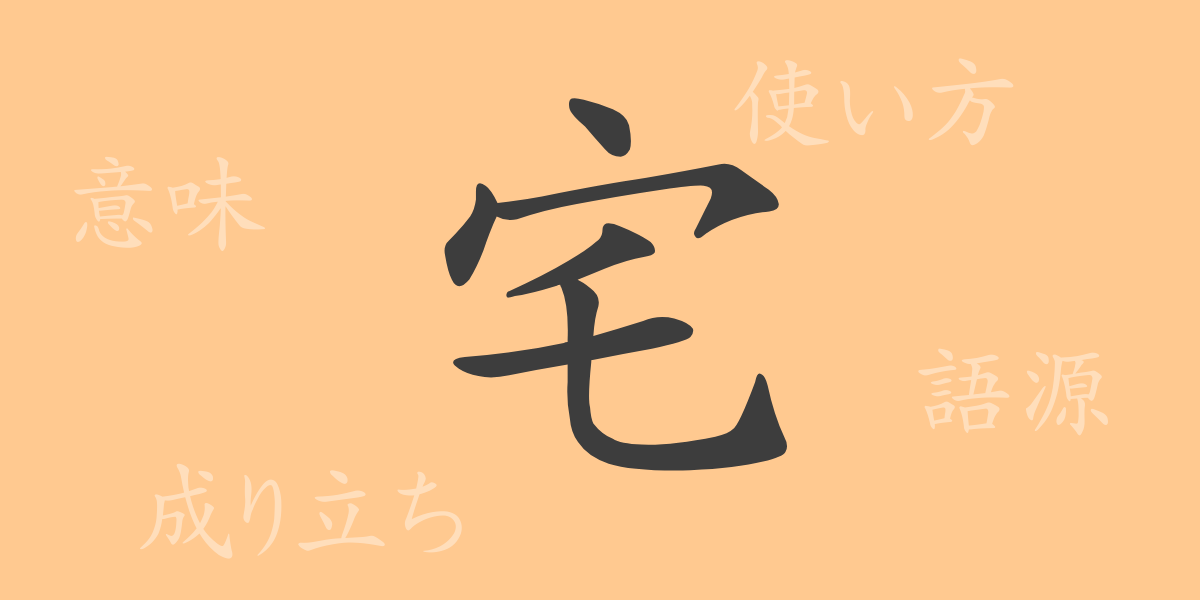The Kanji “宅” (たく) (taku) is deeply rooted in Japanese culture and is indispensable in our daily lives. This single character’s depth of meaning and its use in various idioms and phrases illustrate the richness of the Japanese language. This article explores the origins, meanings, and usage of “宅,” delving into its readings, stroke count, radical, and related phrases and idioms.
Origins of ‘宅’ (たく) (taku)
The Kanji “宅” originates from ancient China, symbolized by a structure signifying a home with a roof and the earth below. This character historically represented the setting of a home on land, a concept used in relation to property. This fundamental meaning of a place to live has remained consistent through the ages and continues in modern Japan.
Meaning and Usage of ‘宅’ (たく) (taku)
“宅” commonly refers to a residence or home. In legal terms, it appears in the term “宅地” (たくち) (takuchi), denoting a category of land. In business contexts, it can refer to companies or stores in phrases like “○○宅” and is used socially to respectfully denote someone else’s house as “ご宅” (ごたく) (gotaku).
Readings, Stroke Count, and Radical of ‘宅’ (たく) (taku)
The Kanji “宅” features the following linguistic elements:
- Readings: The on’yomi (Sino-Japanese reading) is “タク” (taku), with no commonly used kun’yomi (native Japanese readings).
- Stroke Count: “宅” consists of 6 strokes.
- Radical: The radical is “宀” (うかんむり) (ukanmuri), related to buildings.
Phrases, Idioms, and Proverbs Using ‘宅’ (たく) (taku) and Their Meanings
There are numerous idioms and phrases involving “宅,” which include:
- “自宅” (じたく) (jitaku): Refers to one’s own home.
- “宅配” (たくはい) (taku-hai): Delivery of goods to a home.
- “宅急便” (たっきゅうびん) (takkyuubin): A courier service that delivers packages quickly.
- “宅地” (たくち) (takuchi): Land on which a house stands or is intended to be built.
- “宅建” (たっけん) (takken): Abbreviation for real estate transactions, referring to the business of dealing in real estate and buildings.
Summary on ‘宅’ (たく) (taku)
The Kanji “宅” has long been used to denote living spaces, from ancient times to the present. Its applications extend beyond mere residential implications to include land, business, and social communications. Understanding the meanings embedded in each Kanji like “宅” is the first step toward appreciating the depth of the Japanese language. We hope this article has sparked your interest in the world of “宅.”

























